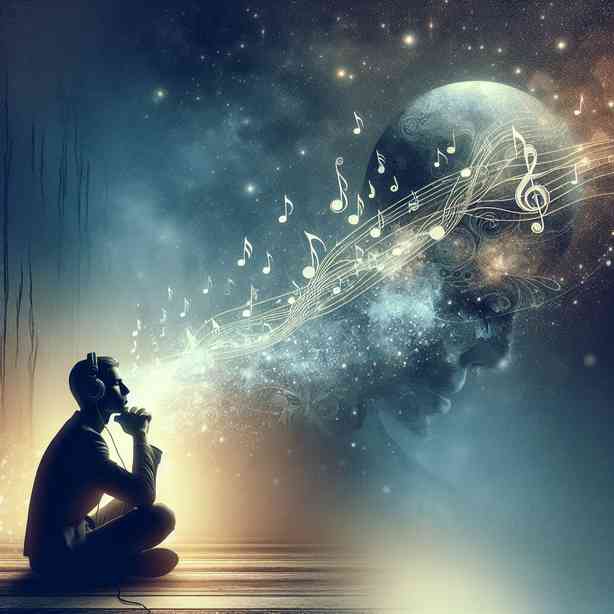
Music has long been recognized as a powerful medium that transcends barriers, cultures, and emotions. It can evoke passion, nostalgia, joy, and even sorrow. Among the many functions of music, one of its most remarkable abilities is to facilitate forgiveness. Forgiveness is a deeply personal and often challenging process, but music can provide a soothing balm that enhances healing. Through its various elements—lyrics, melodies, rhythms, and harmonies—music can help people navigate their feelings and move towards forgiveness.
When we face conflicts or experience betrayal, the emotional turmoil can be overwhelming. Feelings of anger and resentment can build up, resulting in a cycle of negativity that is hard to break. Music has the extraordinary ability to express what words often fail to convey. A heartfelt ballad may resonate with our pain, while an upbeat song can uplift our spirits and encourage us to let go of grudges. In this process, music acts as an auditory journey leading us toward emotional clarity.
For many, specific songs hold deep personal significance, often becoming the soundtrack of their lives. These melodies can remind us of a time when we felt loved or remind us of relationships that once brought us joy. By revisiting such songs, we may find ourselves reflecting on the reasons for our grievances. The nuances in the lyrics may offer insights that prompt us to reconsider our positions. In this way, music can nurture empathy, allowing us to step into the shoes of others and understand their perspectives.
Consider, for example, a song that deals with themes of heartbreak and reconciliation. Lyrics discussing vulnerability can resonate with someone who has been deeply hurt. As they listen, they may find a narrative parallel to their own situation, making them feel less alone in their pain. At times, it may be through the act of exploring these feelings via music that individuals come to realize the futility of holding onto anger. The reminder that everyone struggles and experiences heartache can foster a deeper understanding and compassion.
Another aspect to consider is how music can serve as a catalyst for emotional release. When one listens to a particularly moving song, it can evoke tears or laughter that may have been stifled. This emotional release is critical for the healing process. Songs that resonate with feelings of loss or betrayal can provide a safe space to express those pent-up emotions. Allowing oneself to cry while listening to a powerful ballad can be liberating and can ultimately contribute significantly to the forgiveness journey.
Furthermore, participatory music, such as singing in a choir or playing a musical instrument with others, can create bonds of community and shared experiences. During moments of conflict, creating music with others can foster cooperation and connection. The collective experience of producing something beautiful can transcend individual grievances. This sense of unity can promote a spirit of forgiveness. Engaging in music-making activities nurtures team spirit, empathy, and understanding—vital components of forgiveness.
Even in instances of deep-seated conflict, such as those stemming from familial relationships, music can bridge divides. Families may come together through a shared love for certain songs or genres. Playing music that evokes happy memories can reignite affection and help family members remember the love that once connected them. Revisiting these musical memories can often eclipse past grievances, allowing for forgiveness to slowly unfold.
Moreover, music therapy—an emerging field—demonstrates the profound impact of music on psychological healing. Therapists employ music as a tool to help individuals process their emotions, including anger and resentment. Research has shown that structured music therapy can significantly improve emotional well-being and facilitate forgiveness by helping individuals articulate their feelings in a non-threatening manner. The therapeutic effects of music allow individuals to explore their emotions, confront painful experiences, and create pathways toward forgiveness.
Incorporating music into personal rituals can also encourage forgiveness. For instance, individuals might create a playlist of songs that resonate with their feelings or symbolize their journey toward letting go. Listening to this curated collection can serve as a reminder of the commitment to heal and move forward. Engaging with music in this personalized way can transform an abstract concept—like forgiveness—into an actionable journey filled with intention.
Additionally, music can inspire forgiveness through storytelling. Many artists draw on personal experiences in their compositions, sharing poignant narratives of heartbreak and redemption. These songs often serve as relatable accounts of human struggles, demonstrating that forgiveness is possible. By hearing others’ stories expressed through music, listeners may feel empowered to embark on their own paths of forgiveness, recognizing that they are not alone.
Conflict resolution practices also increasingly incorporate music as a tool for restorative justice. In community mediation processes, music can serve as a bridge for dialogue. By singing songs together or collaboratively creating music, individuals in conflict can find common ground. This shared creative experience allows for the expression of grievances while simultaneously promoting collaboration, understanding, and ultimately, forgiveness.
In conclusion, music serves as a powerful ally in the quest for forgiveness. Through its ability to evoke emotion, provide perspective, facilitate emotional release, and foster community, music can help individuals navigate the painful waters of conflict. Whether through the poignant lyrics of a ballad, the uplifting energy of an upbeat song, or the collective spirit of making music together, the journey toward forgiveness can be enriched by the profound impact of this art form. The next time you find yourself grappling with feelings of anger or resentment, consider turning to music as a source of healing. The right melody at the right moment can open doors to compassion, understanding, and ultimately, forgiveness.


